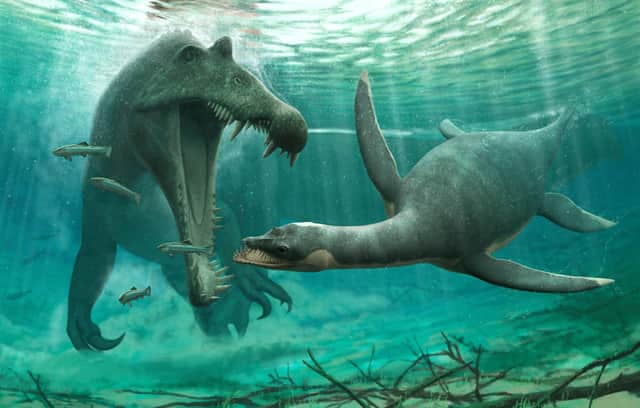Loch Ness Monster: New fossil sounds like conclusive proof to us – Scotsman comment


The Scotsman, of course, never doubted it for a moment. Nessie, our much-beloved, shy and retiring monster, is no longer fictional unlike so-called rivals such as Godzilla, the Kraken and something called a Balrog.
OK, we should probably admit around about now that there are some caveats, and they are quite big ones, possibly even bigger than Nessie.
Advertisement
Hide AdAdvertisement
Hide AdHowever, first the good news. One theory to explain all the stories stretching back to a biography of St Columba dated from 565AD and a mysterious flippered beast shown on ancient Pictish carvings is that it was a family of plesiosaurs who somehow, er, survived the extinction of the dinosaurs 66 million years ago.
A problem with that theory – and, all right, there are many – was that these were marine animals, preferring salt water, not fresh. At least, that’s what was thought until now!
For fossils of small plesiosaurs, with Nessie-like small heads, long necks and four long flippers, have been discovered in a 100 million-year-old river under Morocco’s Sahara Desert.
Some may call us naive, but if that – and more than 1,140 sightings on the ‘Official Loch Ness Sightings Register’ – is not conclusive proof that the tourist industry based on the non-legend is very much not a commercially driven fairytale, well then, we don’t know what is.
Now, all we need to do is capture some of those elusive haggis beasties on film...
Comments
Want to join the conversation? Please or to comment on this article.
